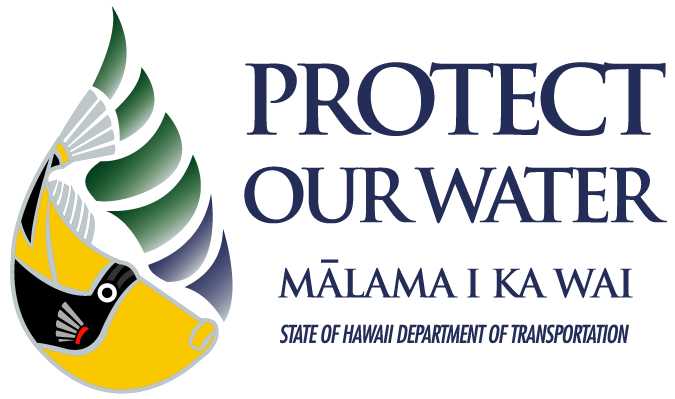Storm water is everybody’s business!
Rainwater is naturally absorbed through the ground, adding to Oahu’s water supply. However, when heavy rainfall comes down too hard or too fast, the ground cannot fully absorb it all. It’s like when a kitchen sponge fills with water, it can only absorb so much. Excess rainwater flows over the ground’s surface until it finds its way to the ocean through the storm drain system or nearby streams. This excess rainwater flow is called, “storm water runoff.”
Storm water runoff itself does not usually harm the environment. However, impervious (waterproof) surfaces, such as driveways, sidewalks, and paved streets, that don’t absorb rainwater into the ground can increase the amount and intensity of storm water runoff. Excess water flows across these surfaces and can cause flooding or erosion problems. Additionally, urban pollutants, including oil, grease, trace metals, excessive nutrients, and other hazardous chemicals, accumulate faster on impervious surfaces than in natural areas. Storm water runoff may wash urban pollutants off these surfaces and carry them directly to Hawaii’s storm drains, streams, and eventually the ocean, potentially negatively impacting water quality and resources.
Residents
Did you know that common household chores and housework can have an impact on water pollution?
When using cleaning agents outdoors, rainwater can wash these chemicals into storm drains. Though your household may not use a lot of chemicals, 500,000 residents using petroleum-based cleaners, ammonia, or other chemical agents can cause a problem when it rains. Since storm drains flow directly to the ocean, chemicals used for household cleaning may end up polluting ocean water. Not only does outdoor chemical use impact Hawaii’s water resources, but indoor activities, such as cooking or using the restroom, can lead to storm water pollution, too. Click the button below to download Helpful Tips for Around the House. Additional storm water tips can be found below.
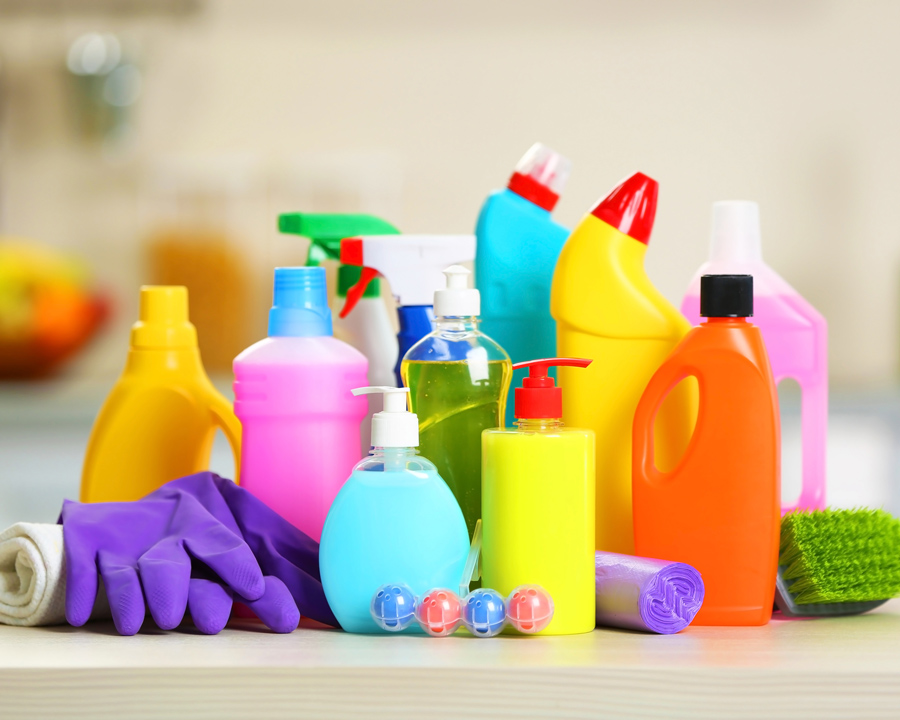
Safely Dispose of Household Products
Properly dispose of household products containing chemicals, such as insecticides, pesticides, paint, solvents, used motor oil and other auto or mechanical fluids. Don’t pour them on the ground, into roadway gutters, or into storm drains.
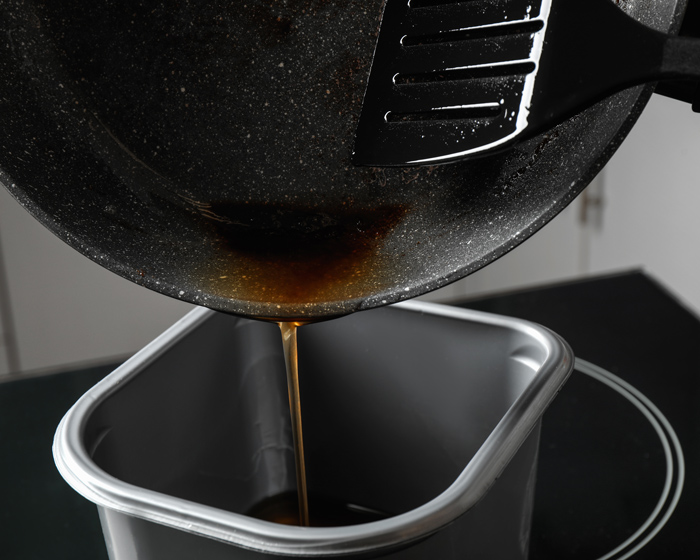
Dispose of Oil and Grease Responsibly
Dumping used cooking oil or grease down a sink drain can clog sewer lines, resulting in breaks in the line that may cause sewage to flow directly into the ocean.
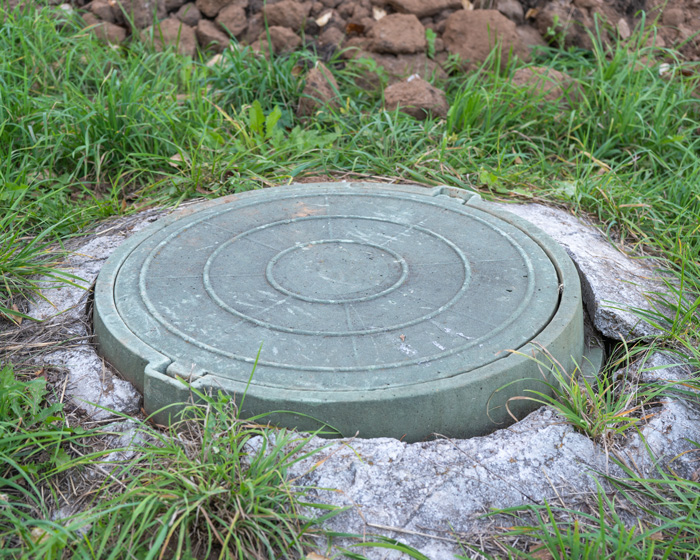
Check Your Septic Tank
If you have a septic tank, be sure to check it regularly to ensure harmful bacteria and viruses aren’t released into surrounding soil. Excess rainfall may also pick up pollutants and send it into the ocean.
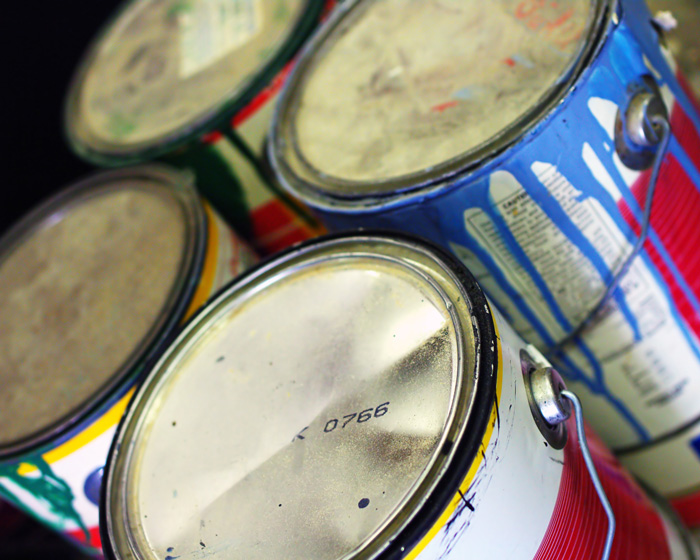
Monitor Your Paint Supply
Old paint cans can easily rust and leak when left outside. Avoid the urge to stock-up on excess paint; it will save your wallet and help to prevent water pollution.
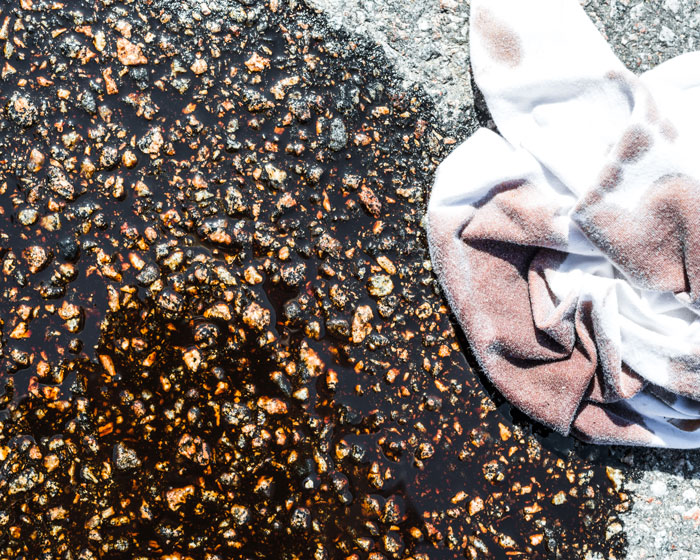
Wipe Up Outdoor Spills
Don’t use water to clean your garage or driveway. When using cleaners to get oil and gunk off your driveway, garage, or carport floor, wipe up the excess. Hosing chemicals down the driveway will send hazardous waste and oils to storm drains and the ocean.
Gardening
When you use chemicals on the lawn or plants, rain can wash it down into storm drains. You may not use a lot of chemicals yourself, but 500,000 residents fertilizing their lawns on a Saturday may cause a problem if it rains on following Sunday morning. Since storm drains flow directly to the ocean, chemicals used to clean lawns may end up polluting our oceans.
Here are some gardening and lawn care tips to help prevent storm water pollution.
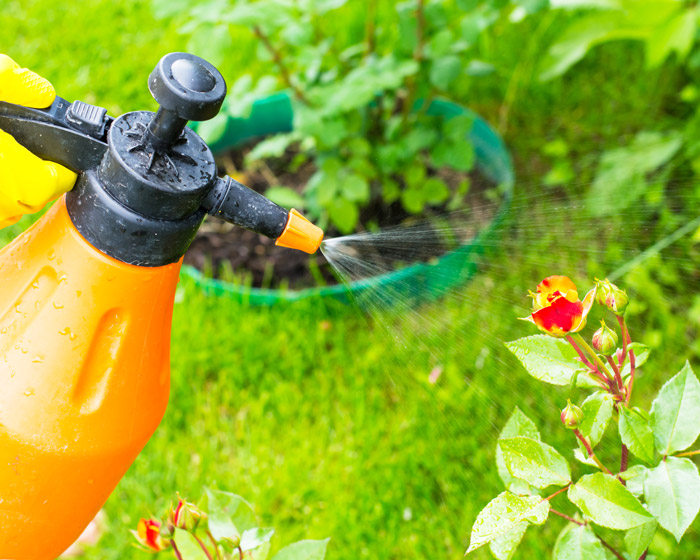
Use Chemicals as Needed
Use pesticides, herbicides, and fertilizers only as needed. This will save you money and help reduce the chances of rain washing it down the storm drain.
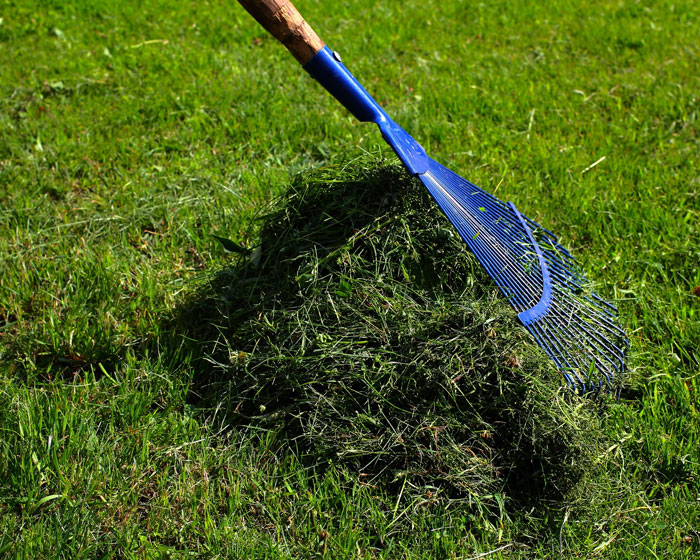
Dispose of Grass Clippings Properly
After mowing your lawn, pick up excess grass clippings and throw them in the green waste or trash can so the rain doesn’t send them into storm drains. Fertilizers and grass clippings can cause algae blooms, which may use up oxygen in the water. This can harm marine life such as fish and coral, because they can’t survive in water with low oxygen levels.
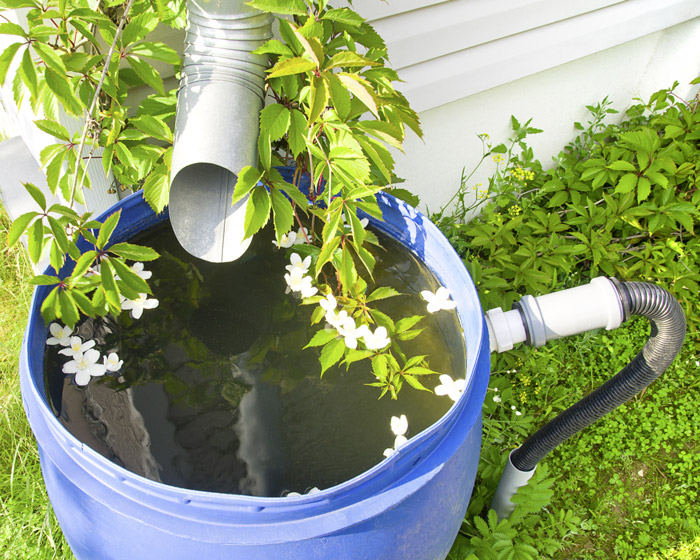
Collect Rainwater in Barrels
Use rain barrels to collect rainwater from rooftops in mosquito-proof containers. The water can later be used on lawn or gardening areas. This also prevents gravel and oil from rooftops from getting into storm drain systems.
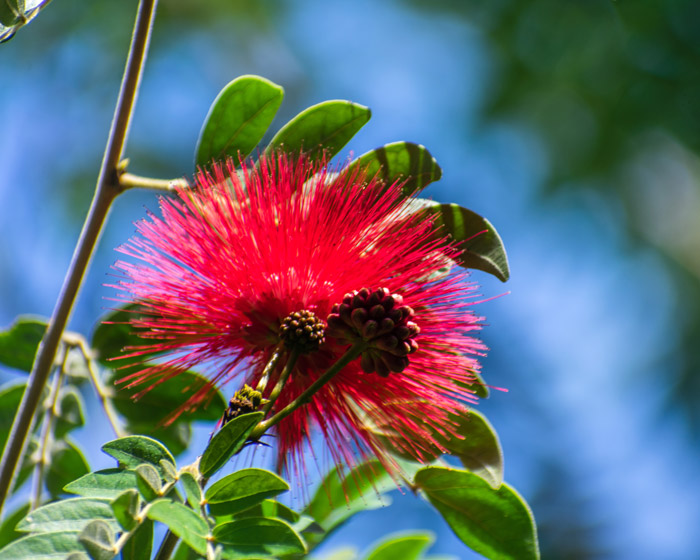
Plant Native Foliage
When planning out your garden, design areas with native plants to provide natural places for rainwater to collect and soak into the ground. Rain from rooftops or paved areas will be diverted into these areas, rather than into storm drains.
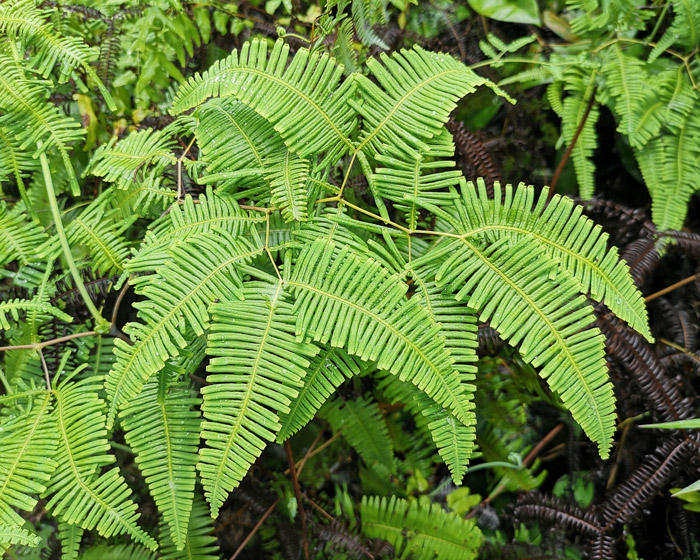
Trap Sediment with Native Foliage
Use native grass or plants along the edge of roadways or streams. When it rains, these plants work well to trap excess chemicals or dirt in the rainwater as it flows across driveways and streets, keeping these harmful substances out of the ocean.
Car Care Tips
Did you know washing your car can pollute our ocean?
When you wash your car, dirty water flows down the driveway, onto the street, into storm drains and directly into the ocean – untreated for harsh chemicals. It not only pollutes surrounding water sources, but it may also contain compounds of heavy metals such as lead and mercury. These harmful compounds flow into our streams and oceans, affecting aquatic life. Heavy metals concentrated in fish like tuna are particularly harmful to pregnant women and infants.
Here are a few car care tips to help prevent storm water pollution.
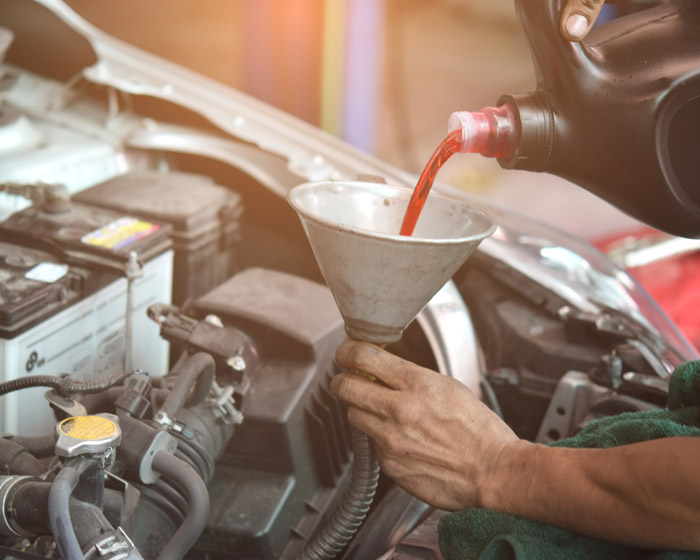
Refrain from Dumping Auto Fluids
Don’t dump auto fluids such as antifreeze or brake fluid into storm drains or let them wash down the street where they could go down storm drains. This would only contaminate our oceans.
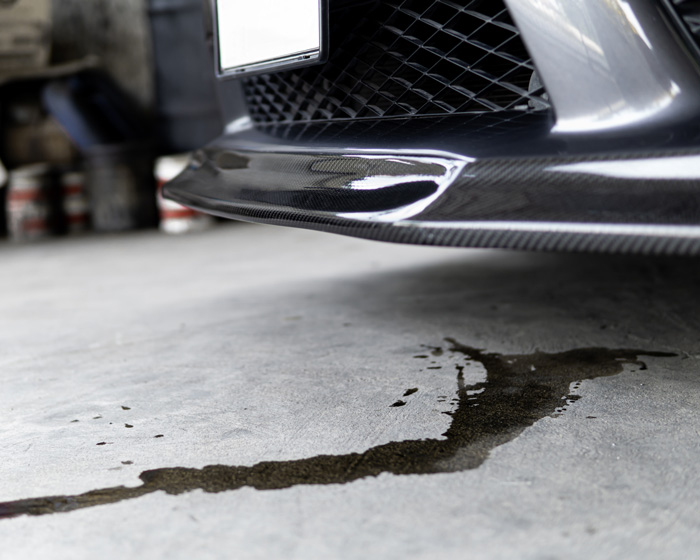
Fix Leaks Quickly
If your car is leaking fluids, try to get it fixed as soon as possible to prevent excessive leakage on the streets and in your driveway, where rain can wash it down the storm drains.
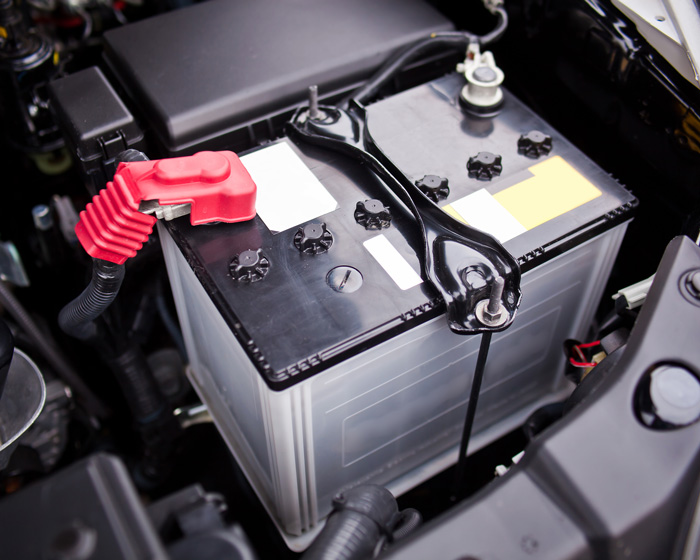
Dispose of Auto Batteries Responsibly
Give your old auto batteries to the dealer when purchasing new ones or take them to the City Convenience Center nearest you. Batteries contain strong harmful chemicals that could hurt children who might touch or play with them. Old or damaged batteries can also easily leak these harmful chemicals onto the ground to be washed into the ocean after a storm.
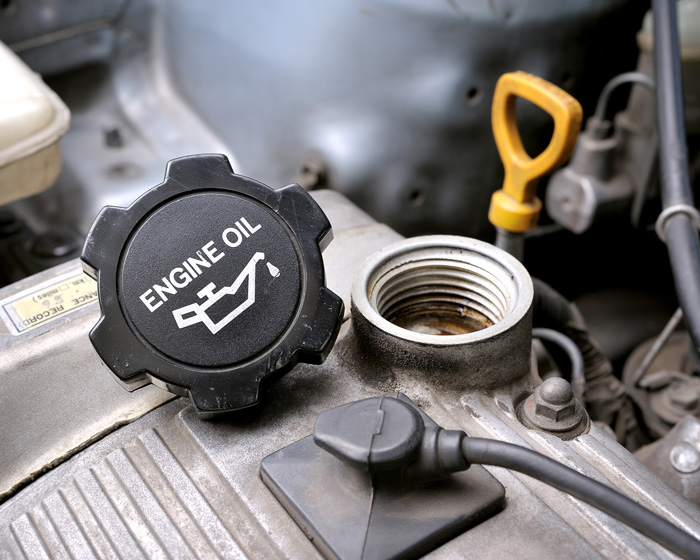
Refrain from Dumping Oil
When changing oil, use an oil change box to absorb all of the dirty oil and throw it away in the trash.
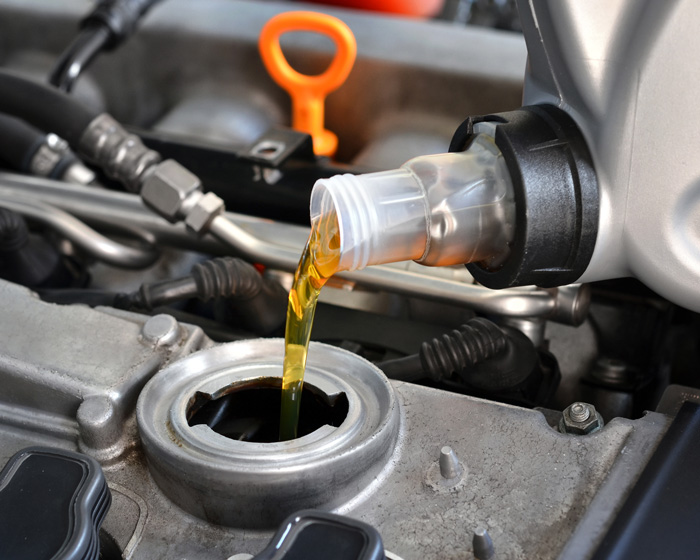
Dispose of Oil Responsibly
No oil change box? Just pour it into a plastic bag with plenty of absorbent material to soak it up, then seal the bag and toss it in with the rest of your trash. Motor oil contains many harmful metals that damage our reefs and favorite swimming areas.
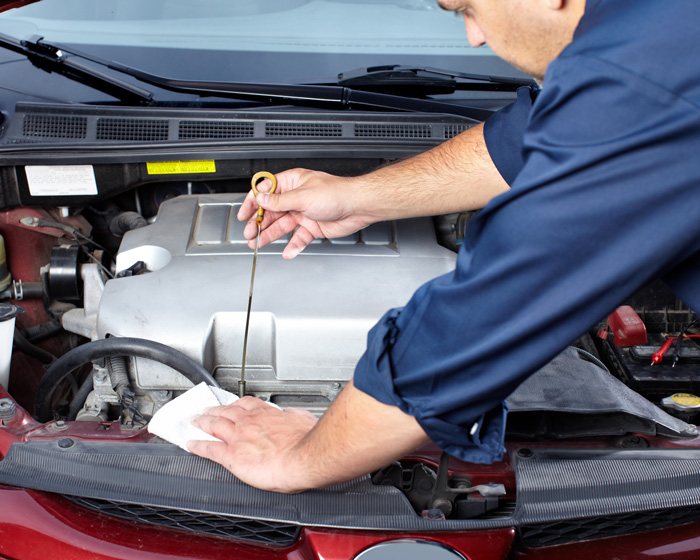
Get Your Oil Professionally Changed
Don’t want to mess with the used oil? Consider having your oil changed at a service station.
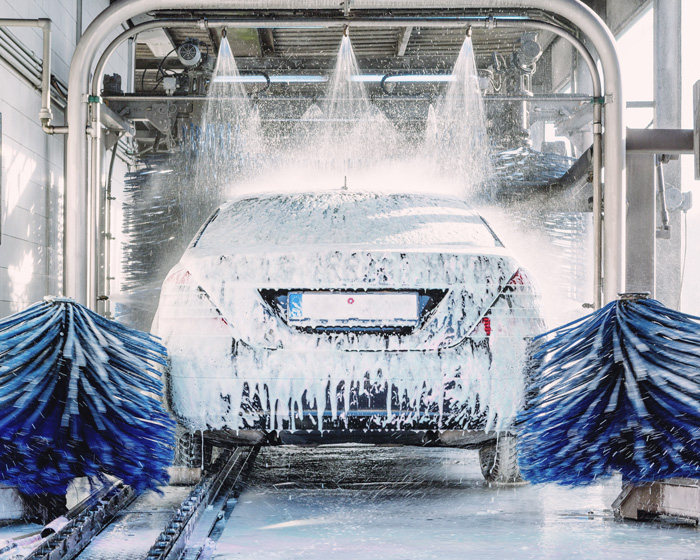
Don’t Wash Your Car in the Driveway
Consider taking your car to a commercial carwash that treats or recycles its wastewater, or wash your car on grass, so the water is filtered into the ground.
Home Improvements
Did you realize that home improvement and construction projects can pollute our waters?
When you dig up your property to build a long-awaited extension or build your dream kitchen, it’s possible that dirt, silt, oil, or chemicals may become exposed. When hit by rainfall, these pollutants will flow to the storm drains and into the ocean, where they pollute our waters and harm marine life.
Here are some construction tips to prevent storm water pollution.
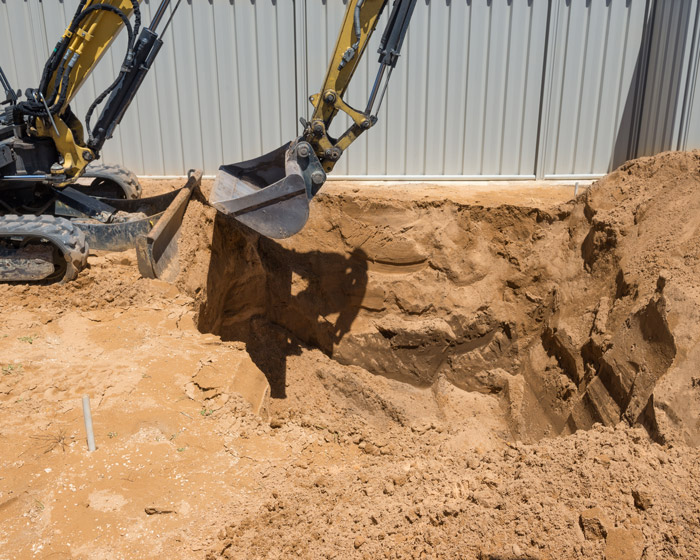
Get Landscaping Done Quickly
If you plan to have landscaping, try to get a contractor in as soon as possible to prevent dirt from being exposed to the rain for too long.

Reduce Excavated Dirt
If possible, work with your contractor to reduce the amount of dirt that is excavated. It will save you money and prevent the dirt from polluting the ocean.
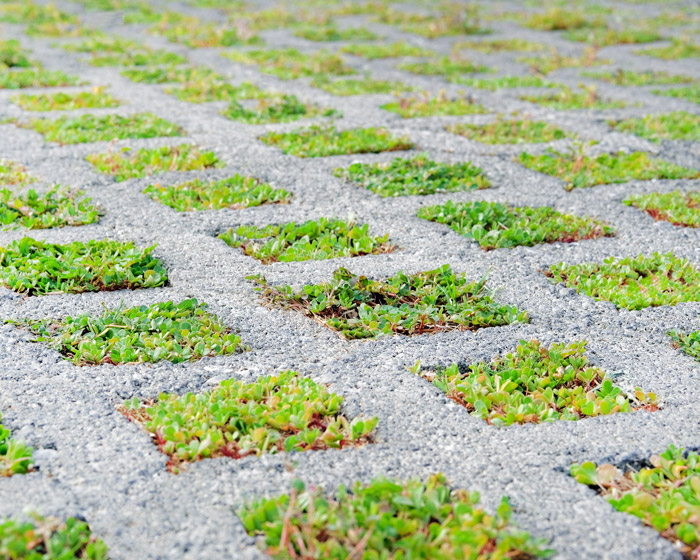
Install Permeable Pavement
Ask your contractor about putting in permeable pavement wherever possible. This will allow more rainwater to soak into the ground and recharge our aquifers rather than draining into our streams and oceans.
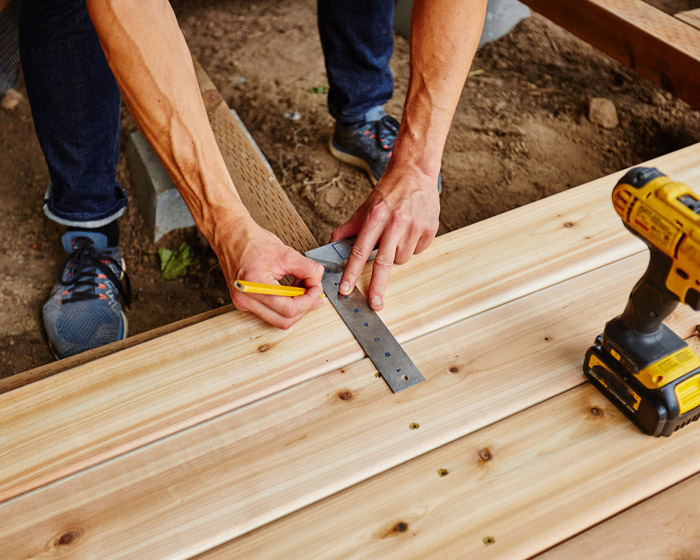
Follow BMPs
If you decide to do-it-yourself rather than hire a contractor, learn about the types of permits that are required. Best management practices (BMPs) should be used to prevent or treat the water that flows out of your yard and into the storm drains.
Agriculture
Do you have livestock on your property or grow fruit trees or other produce in your backyard? Did you know that your backyard agriculture could be putting pollutants into Hawaii’s waters?
Large agricultural areas provide lots of space to raise livestock. But many large areas also include streams. Livestock or wild animals can contaminate the streams they walk in with bacteria, making it unsafe for human contact. In addition, when it rains, large agricultural lots often times drain out to roadways, where water laden with dirt, fertilizers, and other chemicals can enter storm drains and flow directly to the ocean.
Click on the button below to download Helpful Landscaping Tips for Your Home, or browse the following tips to prevent storm water pollution.
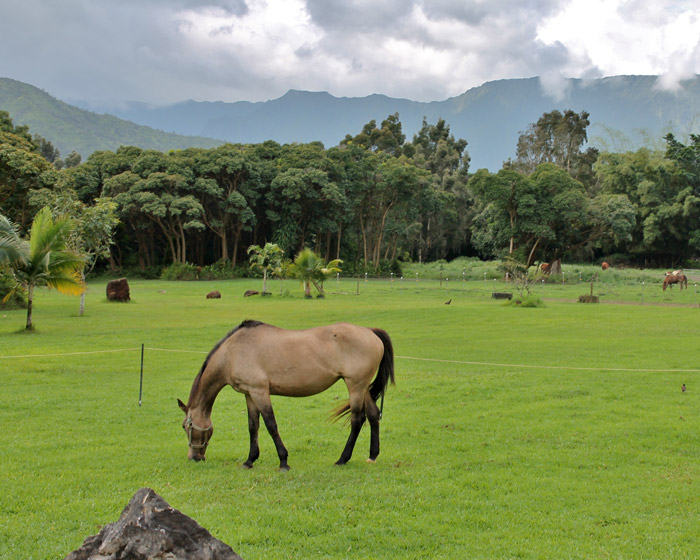
Keep Animals Away From Streams
If you own livestock, keep them away from stream banks and provide a source of water away from natural waterways.
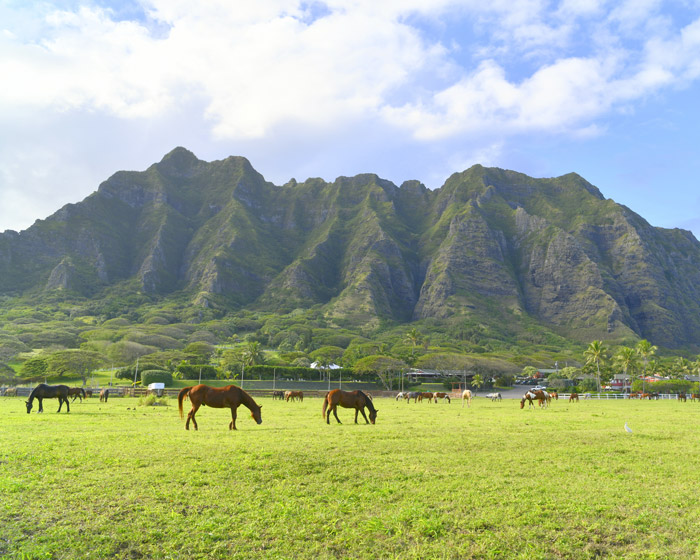
Prevent Soil Erosion
Rotate animal grazing to prevent soil erosion in fields. Erosion results in the loss of nutrient-rich soil that is needed for crops to grow. When it rains, the water carries any loose soil and dirt into the streams where it can cause flooding.
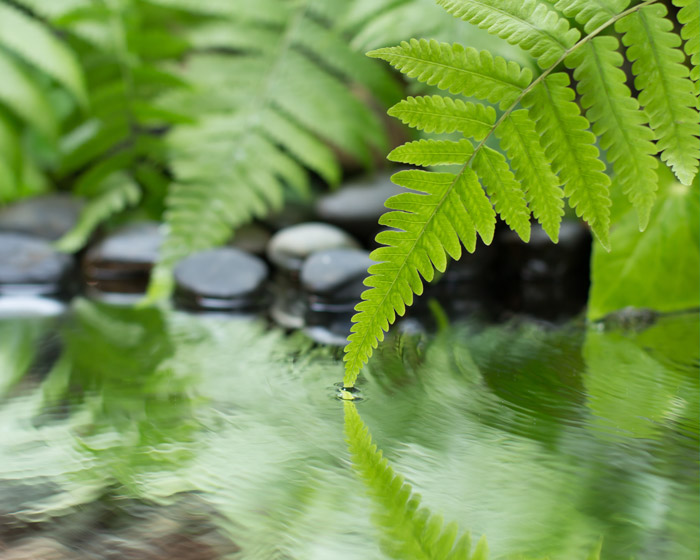
Create Buffer Zones
Plant vegetation, preferably native species, along stream banks creating a thick buffer to help prevent livestock and wild animals from easily getting into the water. Also, when it rains, native plants work well to trap any excess fertilizers, chemicals, or dirt in the rainwater as it flows across the fields, ensuring that less of these harmful substances are flushed into our ocean.
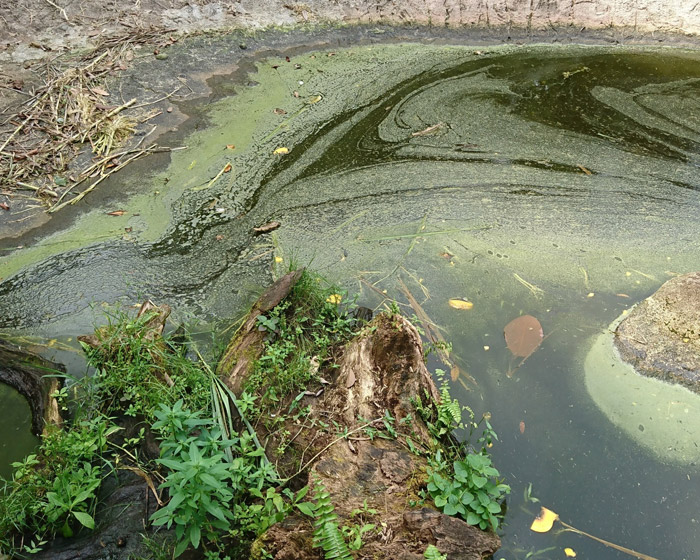
Keep Fertilizers and Vegetation Out of Streams
Store and apply manure and other fertilizers away from streams. When mowing or harvesting, properly dispose of vegetative material. Fertilizers and vegetative material can cause algae blooms, which use up all the oxygen in the water. This harms fish, coral, and stream life because they cannot survive in water with low oxygen levels.
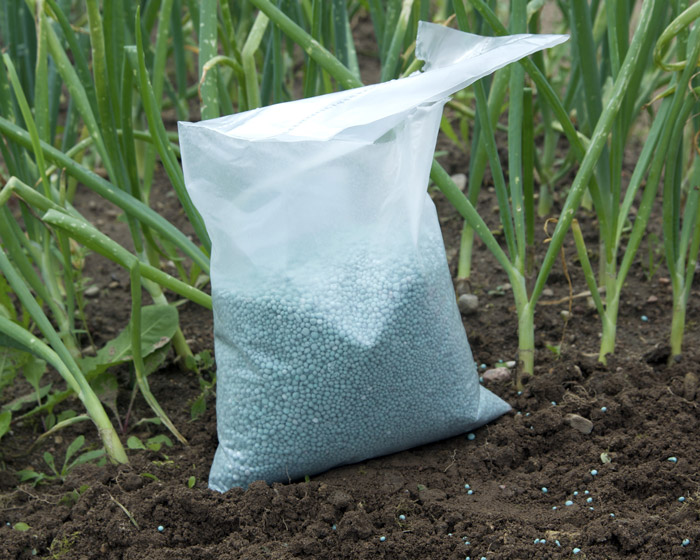
Adhere to Label Instructions
Apply fertilizers and pesticides according to label instructions to save money and minimize pollution from excess chemicals washing into streams and the ocean.
Household Hazardous Waste
Are you disposing your household hazardous waste properly?
Some of the products you use at home are potentially hazardous. Safe handling and proper disposal of these materials will protect you, your family, and our environment.
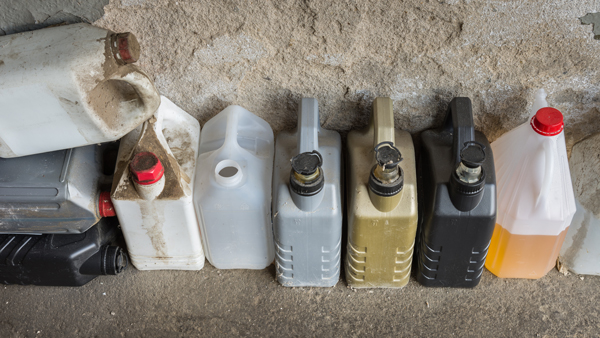
The following materials require special handling and should be disposed of at a household hazardous waste collection event.
Acetone
Arsenic
Boric Acid
Chlordane
DDT
Dieldrin
Fertilizers (liquid)
Formaldehyde
Gasoline
Herbicides
Hydrochloric Acid
Insecticides
Kerosene
Lead
Lighter Fluid
Malathion
Mercury
Muriatic Acid
Paint Stripper
Paint Thinner
Paraquat
Pentachlorophenol
Paris Green
Photographic Chemicals
Rust Remover
Solvents
Swimming Pool Chemicals
Turpentine
Varathane
Wood Preservatives
Acetone
Arsenic
Boric Acid
Chlordane
DDT
Dieldrin
Fertilizers (liquid)
Formaldehyde
Gasoline
Herbicides
Hydrochloric Acid
Insecticides
Kerosene
Lead
Lighter Fluid
Malathion
Mercury
Muriatic Acid
Paint Stripper
Paint ThinnerParaquat
Pentachlorophenol
Paris Green
Photographic Chemicals
Rust Remover
Solvents
Swimming Pool Chemicals
Turpentine
Varathane
Wood Preservatives
Drop-off of household hazardous waste is by appointment, and is only for residents. Check the website below for scheduled dates and drop-off locations, as they may change. Call (808) 768‐3201 or email householdhazardouswa@honolulu.gov to schedule an appointment. Prepare an inventory list of your items, which include the type of material you wish to dispose and the container size (i.e. acetone – 2.0 quarts). Request for appointment must be made no later than one week prior to each event.
Household Hazardous Waste Collection Events for 2025:
January 2025
March 2025
May 2025
July 2025
September 2025
November 2025
Please visit the City and County of Honolulu’s Department of Environmental Services website to learn more at https://www.honolulu.gov/opala/quick-links/hhw.html
